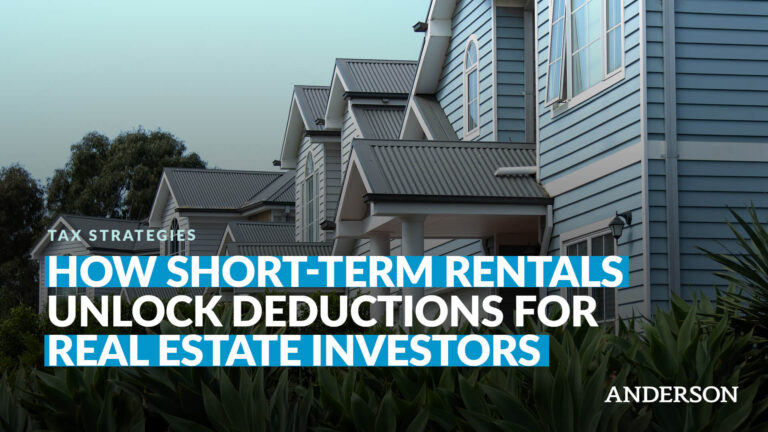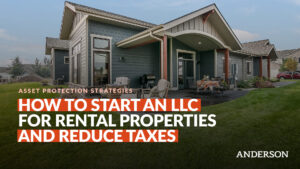Updated September 24, 2021
A blanket mortgage—also known as a blanket loan refinance—allows real estate investors to finance multiple properties under a single loan. This portfolio-based financing strategy can simplify cash flow management, improve leverage, and unlock capital for future investments. However, blanket mortgages also come with higher qualification standards and unique risks that investors must carefully evaluate before consolidating multiple properties into one loan.
Pros and Cons of a Blanket Mortgage
PROS:
- Additional Cash to Invest
- Better Interest Rates
- More Leverage
CONS:
- Higher Down Payments
- Balloon Payment Terms
- Harder to Qualify
As you might guess, no matter what property type a buyer is looking at—whether it’s a home for themselves or a rental opportunity—having the cash on hand or in one’s bank account to purchase the property outright is not often possible. So many individuals looking at a potential personal property or investment property look to a mortgage lender to provide a traditional mortgage loan in order to purchase the property in question.
But what if someone wants to purchase two or more properties, or they already have an entire portfolio and each existing property is already financed with conventional loans? It would be hard to get a consumer-facing financial institution to offer a mortgage loan in such a case because the applicant is already encumbered by multiple properties, each with a lien and the burden of a monthly payment. Not only that, but the likelihood of paying cash in full for such an acquisition is also unlikely, especially in commercial real estate.
In situations like this, an investor might look for one entire loan to finance each and every individual property they own in their portfolio, including their new acquisition(s). This type of loan is typically called a blanket mortgage loan. It should not be confused with a wraparound mortgage, which is actually a form of seller financing. Consolidating multiple, individual mortgages into one entire mortgage is the idea of a blanket mortgage.
What is a Blanket Mortgage?
A blanket mortgage, also known as a blanket loan refinance, facilitates one single mortgage covering two or more properties. Usually, each property would have its own mortgage. However, a real estate investor might reach a point where managing loans for several properties becomes burdensome or costly, and consolidating into one single mortgage makes life easier.
Alternatively, the investor may be looking at several potential properties to buy, and obtaining a blanket mortgage ab initio instead of several mortgages—one to cover each property—is an attractive option moving forward.
How to Get a Blanket Mortgage?
An institutional lender like a bank may offer a customer a blanket mortgage if they are a high net worth individual and/or if the borrower already has an account with the bank in good standing. Generally, speaking, though, most real estate investors will need to look elsewhere for a blanket mortgage. A mortgage broker or mortgage banker within their network may be a good place to start, as will a private investor. Usually, such private investors are more interested in the financial potential of a piece of property rather than the credit score of the borrower, especially because the property itself may be offered as collateral in such an arrangement.
In sales, they say to “always be closing” (ABC). In real estate, it’s beneficial to “always be networking” because you never know when you might need something, like a blanket mortgage. If not now, you might soon reach that point.
Looking to network with a real estate tax expert? Let’s chat! Schedule a free consultation by calling 800.706.4741.
Blanket Mortgage Pros
Additional Cash to Invest
There are a variety of costs associated with obtaining a mortgage, such as an origination fee and closing costs. With one mortgage instead of multiple mortgages, a real estate investor stands to save a decent amount of money that can be put towards future investments. Additionally, most blanket mortgages operate on something called a release clause, which allows the borrow to sell a property without having to use the sale proceeds to pay off the loan.
This leaves the borrower free to sell off assets in their portfolio and use the cash for other projects, instead of using it to pay down their blanket mortgage. By contrast, if each individual property had its own mortgage and the investor did not have enough cash on hand to pay off any one property, liquidating one asset in their portfolio would likely mean using most or all of it to pay off any outstanding mortgage. The lack of flexibility with having each property covered by its own individual mortgage makes a blanket mortgage more appealing.
Better Interest Rates
Negotiated mortgages will undoubtedly carry a number of different interest rates. This means that an investor will be paying different rates on different properties, some of which might be quite unfavorable.
A blanket loan refinance provides the opportunity to bring everything together under one interest rate. In order to make the idea of consolidation more appealing, lenders will often offer interest rates that are comparatively lower to what the borrower is paying on their multiple loans. The lender offering reconsolidation will still gain by lending money, even if the rate is lower. The larger dollar amount of the principle typically translates to something worth their time originating.
More Leverage
Leverage is using debt to increase the potential return to something of greater value. A blanket mortgage can provide greater leverage than a traditional mortgage because the latter only allows a borrower to purchase one property, while the former can be used to purchase two or more properties.
Imagine, for instance, being able to use $300k to buy not just one property, but three, putting six figures in cash down on each. Imagine further that that a single $300k property might yield $5k in monthly cash flow, while three different properties could yield $10k or more.

Blanket Loan Cons
Higher Down Payments
A lender offering a blanket mortgage may be putting themselves at greater risk. Borrowers with a single mortgage usually have more personal investment in their property, which may, for instance, be their own home.
But a real estate investor seeking a loan for multiple real estate investments can always walk away from a bad investment, leaving the lender without their money and perhaps some landed collateral. To cover this risk, blanket mortgage down payments may be higher. Additionally, a blanket mortgage will probably be a larger amount of money to begin with, translating to a larger down payment, even if the percentage is the same as it would be for a traditional mortgage.
Many times, investors can still avoid using their cash on hand by seeking a swing loan or other such short term loan to provide the down payment in question. But, as you can see, even with the convenience of a blanket mortgage covering the entirety of a portfolio, a real estate investor will still have a lot of financial obligations to pay attention to at one time.
Balloon Payment Terms
Some blanket mortgages come with balloon payments. When a loan is structured as a balloon payment, the borrower must pay off the entirety of the loan within a shorter amount of time, and the last payment will be one lump sum.
For a real estate investor flipping homes, for example, this means that they will either need to find additional cash or successfully sell the properties they had been hoping to flip by the time the loan comes due. By contrast, a regular mortgage is often amortized, meaning its repayment is scheduled—usually for 15 or 30 years. If an investor cannot flip the home in time to secure funds for a balloon payment, they may seek a swing loan as a temporary measure, or perhaps as a last resort liquidate another asset to provide the necessary cash for the balloon payment.
Balloon mortgages do make sense when interest rates are high because the borrower will be exiting the arrangement after a short time. Additionally, the monthly payment of a balloon loan is typically much lower, making it possible to have several projects in the works at once. An investor flipping homes, for instance, could work on several properties at once, and when the balloon payment is due, use the return on another completed project to pay off the remaining debt.
Harder to Qualify
As mentioned, you typically won’t be able to secure a blanket mortgage from your local bank. In fact, while banks do certainly offer mortgages and home equity lines of credit, and even go out of their way to advertise such financial products, they make no noise about offering blanket mortgages. This is because blanket mortgages are only offered to high-net-worth individuals who can afford to take out a larger amount of money or who have the market savvy to pay it back on time.
Generally, creative real estate investing strategies, such as a swing loan/bridge loan or blanket mortgage, might be easier to secure from a private lender, mortgage banker, or even another investor. There are also blanket mortgage lenders who specifically offer this type of financing and who may market themselves as commercial lenders or a portfolio lender.
Remember that the portfolio itself (or components thereof) will likely be the collateral in the case of a portfolio loan. That’s why it’s always smart for a real estate investor to have a good-looking website or brochure of their portfolio. Making a good first impression with a potential lender can make the process a bit easier.
Who Would Benefit from a Blanket Mortgage?
As we’ve learned, a blanket mortgage covers more than one piece of property. That said, you might think that someone with a personal residence and vacation home might benefit from a blanket mortgage. However, such a property owner is often better off just having two mortgages and putting their payments on autopilot.
The property owner who really benefits from a blanket mortgage is a real estate investor with multiple properties that are already financed, but too hard to keep track of and/or possess different interest rates. Other great blanket mortgage loan candidates would include a real estate developer building multiple properties to sell off one by one, or an investor flipping homes who needs to fund several opportunities at once.
Blanket Loans Can Be a Beneficial Financing Vehicle for Real Estate Investors
There are a number of ways to source cash for a real estate investment, from using saved cash to real estate crowdfunding to blanket mortgages. The best funding really depends on the situation an investor finds themselves in and the timeline of their project.
For a real estate investor with multiple properties, a blanket mortgage covering all of them can be a convenient way to minimize the stress of managing multiple loans, and even a way of saving money on multiple fees and differing interest rates.
Schedule a consultation with an Anderson Advisor’s real estate expert to learn more about the most beneficial real estate investment financing strategies! Our professionals will put together a custom strategy to legally and financially protect your real estate assets.
As always, take advantage of our free educational content and every other Tuesday we have Toby’s Tax Tuesday, a great educational series. Our Structure Implementation Series answers your questions about how to structure your business entities to protect you and your assets.
Additional Resources:
- Claim your FREE Strategy Session, and learn how Anderson Advisors can protect your assets.
- Join our next Tax & Asset Protection event to learn more advanced tax minimization & entity structuring strategies
- For all things investing, check out the Infinity Investing YouTube channel
- Subscribe to our YouTube channel to make sure you never miss the latest strategies & updates
Receive a detailed risk assessment to assist in lowering problem areas that could wipe out all of your assets with one wrong move. Speak with an Anderson Professional Advisor to get your FREE Strategy Session. Limited-Time offer: FREE (a $750 value.)
















